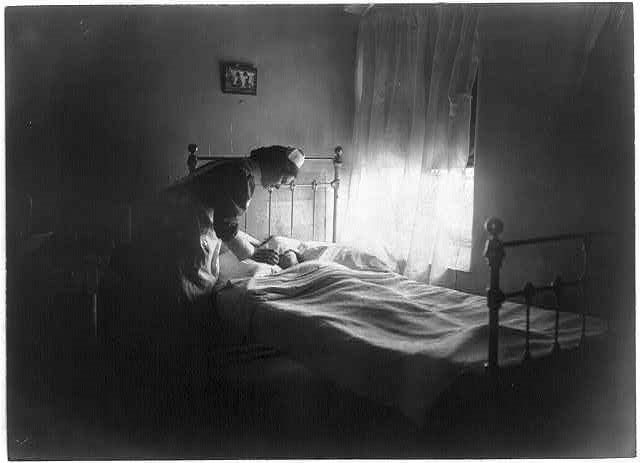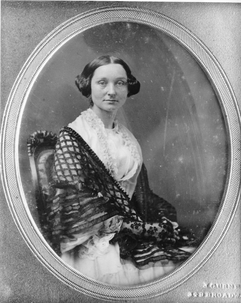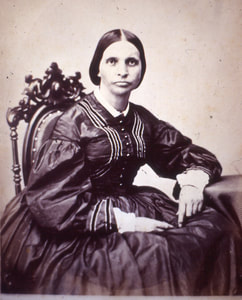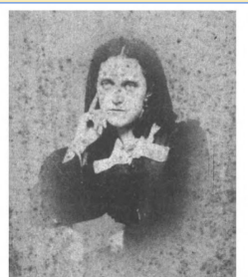In Celebration of National Nurses Week: May 6-12, 2019By Nomi Dayan, Executive Director of The Whaling Museum of Cold Spring Harbor ***In honor of National Nurses Week, the museum is offering pay-as-you-wish admission for nurses (with current ID) and their families (up to 6 people) from Tues-Sunday, May 7-12 2019 as the museum recognizes the importance of nursing roles which whaling wives often took in the whaling industry.*** Becoming ill is never fun. Becoming ill when away from home is worse. And becoming ill at sea on a whaling ship is the worst of all. “Let a man be sick anywhere else - but on shipboard,” wrote whaler Francis A. Olmstead in 1841 in Incidents of a Whaling Voyage. Whalers who fell ill could find little comfort. Francis continued to explain, “When we are sick on shore, we obtain good medical advice, kind attention, quiet rest, and a well ventilated room. The invalid at sea can command but very few of these alleviations to his sufferings.” There were no ‘sick days’ for whalers, who were expected to work during busy times if they could stand. The incapacitated whaler would lie on his grimy, cramped straw mattress in his misery, listen to the nonstop creaking of the ship, roll from side to side with the swaying of the ship, and breathe the fishy, putrid air. He would eventually be visited by the “doctor,” a.k.a. the captain. The skipper would rely on his weak medical and surgical knowledge as he opened his medicine chest and offered some powdered rhubarb, a little buckthorn syrup, or perhaps mercurial ointment, chamomile flowers, or cobalt. The whaler would then either recover or die. If he passed, the captain would casually mention his death in the next letter home, and perhaps pick up a replacement at the next port. If the whaler was lucky, he might awaken from his burning fever and shivering chills to hear a soothing voice, feel a cool cloth being gently placed on his forehead, and perhaps taste a bit of food offered to him. He would sit up to catch a glimpse of this angel visiting him with her wide skirt and billowing sleeves.
Most wives were happy to feel valuable and help contribute to the voyage’s success. Some took the initiative to go beyond their nursing roles: Calista Stover of Maine persuaded the crew of a sailing ship to swear off tobacco and alcohol while in port (the pledge didn’t stick). Others tried to reform men’s swearing. However women tried to improve the crew, their support gives understanding to the root of the word “nurse,” which is Latin for nutrire – nourish. No wonder Charles. W. Morgan wrote, “There is more decency on board when there is a woman.” EXPLORE MORE
1 Comment
|
WhyFollow the Whaling Museum's ambition to stay current, and meaningful, and connected to contemporary interests. Categories
All
Archives
May 2024
AuthorWritten by staff, volunteers, and trustees of the Museum! |





 RSS Feed
RSS Feed
